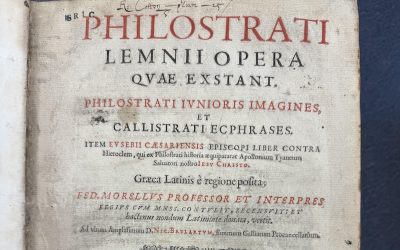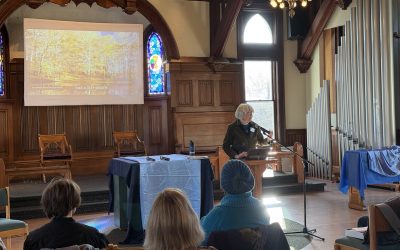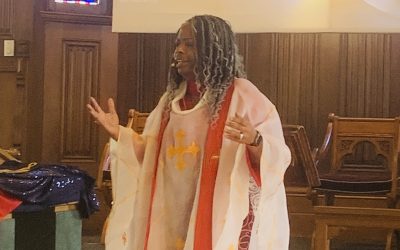The Drew Theological School professor finds inspiration from his students
October 2022 – Stephen Moore is the Edmund S. Janes Professor of New Testament Studies at Drew Theological School. A native of Ireland, he found his Drew home in 1999, having previously taught in Ireland, England, and elsewhere in the U.S.
Moore is the author, editor, co-author, or co-editor of approximately 30 books. Selections from the past five years include Gospel Jesuses and Other Nonhumans: Biblical Criticism Post-poststructuralism; Revealing the New Testament (the first interactive courseware introduction to the New Testament); Sexual Disorientations: Queer Temporalities, Affects, Theologies; Religion, Emotion, Sensation: Affect Theories and Theologies (co-edited with Drew PhD alum Karen Bray T’16); Biblical Interpretations in Queer Time(s); and Revelation: Book of Torment, Book of Bliss.
He has a new book forthcoming in December 2022, The Bible after Deleuze: Affects, Assemblages, Bodies without Organs.
We sat down with Moore to learn more about his current work, and how he finds inspiration from his students.
What are you currently working on?
A short book titled Decolonial Theory and Biblical Unreading: Delinking Biblical Criticism from Coloniality, a trial balloon for what I hope will become a larger project. The book attempts to bring decolonial theory, an extraordinarily incisive body of critical thought that has come out of Latin America in recent decades, into dialogue with biblical scholarship.
This has been a neglected body of thought in biblical studies—surprisingly, since many biblical scholars have long been interested in the imperial contexts out of which the biblical texts emerged (the Roman Empire, for example, in the case of the New Testament texts), and the ways in which these texts were later deployed to legitimize the European colonization of the non-European world, beginning with the Americas.
Decolonial thinkers, many of whom are also activists, enable us to view colonial histories from previously inaccessible angles, and thereby recognize the extent to which our contemporary world is still in thrall to coloniality globally, and to work for decolonial change locally.
Are there personal reasons why these topics are so important to you?
I grew up in Ireland in the shadow of that colonial war known as the Northern Ireland “Troubles.” And I still feel deeply connected to that island, England’s oldest colony, the majority of whose population desire a final cessation of British rule over the northern part of the island that the Crown retained when the southern part achieved independence a century ago.
The more immediate reason for my interest in these topics is certain of the courses I am privileged to teach. For instance, the idea for the book-in-progress I described, and the passion to write it, emerged directly out of a course on coloniality, decoloniality, and the Bible I taught in fall 2021. Two-thirds of the students enrolled in the course were international students from almost 10 different countries, nearly all of them former colonies.
To engage the themes of such a course with such a group of students was an extraordinary learning experience—at least for the professor! As our international student body at the Theological School has continued to grow, our classrooms have become immensely rich intercultural spaces. Teaching at Drew has never been as exciting—or as challenging—as it currently is, and it is wonderful to be part of a faculty that is so determined to rise to these challenges.



